Romanian Centennial was the central theme of the 25th
edition of the Gaudeamus International Book and Education Fair, hosted between
November 14th and 18th by the Romexpo Exhibition Centre
in Bucharest. Around 600 volumes and some 50 events-book launches and
presentations, debates, film screenings, public lectures-marked the Great Union
Centennial and the end of World War I, as well as 90 years since the first
broadcast aired by Radio Romania.
This year, the Fair brought together over 300 participants:
established Romanian publishing institutions, education institutions, book and
periodical distributors, producers of educational games, professional
associations and NGOs working in the field of culture and education. Our guests
today, Bogdan Alexandru Stanescu, head of the Biblioteca Polirom world
literature collection, Andreea Rasuceanu, the initiator and coordinator of the
Contemporary Romanian Writers series of the Humanitas publishing house, and
Eli Banica, the initiator and head of the n’autor collection launched by
Nemira Publishers, spoke about the highlights of this year’s edition.
George Orwell’s Shooting an Elephant was one of the most eagerly
awaited releases in Biblioteca Polirom collection. Bogdan Alexandru Stanescu
told us more about this volume and about other novelties in the collection:
The book brings together essays on the years spent by George
Orwell as a member of the Indian Imperial Police in Burma, in 1922-1927, and on
his self-imposed poverty period. These essays are, perhaps to a higher extent
than his diary, in a position to shed light on the portrait of this British
writer. Another new title in Biblioteca Polirom is Philip Roth’s Why Write?
brilliantly translated by Radu Pavel Gheo. It is a non-fiction book, comprising
interviews, essays, confessions, the last book that Roth lived to see
published, by the prestigious Library of America. It also includes
autobiographical pieces published by Roth between 1960 and 2014. Also in this
year’s edition of Gaudeamus we launched A Lifetime in Letters. Correspondence
I (1879-1890) by A. P. Chekhov. It is an edition translated and edited by
Sorina Balanescu, and this first volume of Chekhov’s epistolary autobiography
comprises letters sent by the author between 1879 and 1890. It was originally
designed as a 3-volume edition, but details change from one month to the next,
so a fourth volume is not out of the question.
Last year, Humanitas Publishers launched a new collection, entitled
Contemporary Romanian Writers. Andreea Rasuceanu, the coordinator of the
collection, believes that contemporary Romanian literature is very diverse, and
this diversity must be properly showcased. She also gave us details about new
titles launched in this collection at the Gaudeamus fair:
Humanitas Publishers opened the series of new releases with
3 new books. The first is Radu Vancu’s Transparency, an erudite, semi-fantasy
novel, reminding of Mircea Cartarescu’s style, and which incorporates a
wonderful love story. The plot is set in a mythical version of Sibiu, rewriting
its map and including it in a list of fictionalised cities. Another book that
we launched at Gaudeamus is Iulian Popa’s debut work, Guadalajara, a short
story volume. The author has a fresh voice, one that convinced me as soon as I
read some of his stories. They have a sense of quaintness, of melancholy,
whether they talk about a couple’s crisis, about the loneliness and confusion
of old age, or about the lack of communication in today’s world. It is a prose
in which I believe, and I hope it will be successful. And not least, we have a
collective volume, an anthology called 16 prose writers of today, which
includes works by some of the most important contemporary Romanian prose
writers.
Another collection focusing on Romanian literature is n’autor, launched
by Nemira this year. A collection that describes the world we live in, the
reality of our days and of the past, snapshots of Romanian society and of the
world, the constantly changing mankind. Eli Badica:
The latest volume, which we launched at the Gaudeamus Fair,
is a novel entitled The night between the worlds, by Irina Georgescu Groza.
Irina made her debut with a volume of short stories brought out by Casa de
Pariuri Literare 2 years ago, and now she is back with this splendid novel,
whose protagonist is a very special little girl living in the communist era. As
regards how we promote and receive literature, what I can say is that foreign
literature still benefits from much stronger promotion than Romanian
literature. But all the responses we have received so far since the launch of
this collection, n’autor, help me remain an optimist. During our promotion
tours we talked to bookshop owners, who know better than anyone what sells and
what doesn’t, and they are optimistic as well. They told me that the recent
releases in this collection, namely A horse in a sea of swans by Raluca Nagy
and Stories from a garage by Goran Mrakic, were very well received by
readers. They were books that people are buying and talk about, from readers to
bloggers and journalists. This makes me believe in the Romanian public and I
think it is a good time for the Romanian market, in the sense that Romanian authors
are increasingly visible and readers are beginning to realise that many of the
Romanian writers are just as good as foreign ones.

